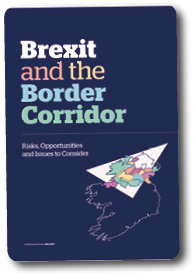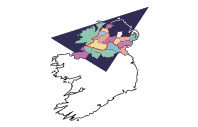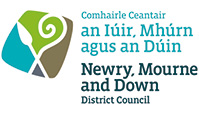Brexit: A border council perspective


Over a year on from the EU Referendum, the Northern Ireland business community continue to watch and investigate the impact of the UK’s decision to leave the EU. However, for the economy of Newry, Mourne and Down District Council, the detail of the ‘exit agreement’ is of paramount importance.
Councils in the cross-border area have come together as a collective body to carry out initial analysis on the potential risks and opportunities which may be posed by Brexit to the border council areas. Research, which was conducted by Ulster University, was presented at a Cross Border Conference jointly held by the cross-border councils and their strategic partners. A clear message communicated was that businesses operating in the cross-border area will have double the exposure to any disruption to trade arising from Brexit.
€3 billion in goods are exported across the border each year. EU trade by firms in the border council areas represents 22 per cent of total sales. This compares to only 10 per cent of sales by Northern Ireland firms outside of the border area. Sales to the EU from the border council areas are largely driven by the agri-food and advanced manufacturing sectors, which accounts for 77 per cent of border council area sales to the EU.
The continuation of cross-border trade with limited disruption is therefore significant to the success and growth of the Newry, Mourne and Down District Council area business base. Sectoral risks are apparent, with particular focus on the agri-food and fisheries sector, which is most volatile due to high exposure with 90 per cent plus of their exports to the cross-border or UK market, but also with the appliance of higher tariffs than other goods/services. The size of businesses within the agri-food sector tends to be smaller scale, with lower turnover and profit margins making any trade disruption a particular danger. Smaller but still significant levels of exposure are also expected in other sectors who have a heavy reliance on cross-border trade and exposer to tariffs: engineering, construction and building materials being most affected.
Many sectors along the border corridor also rely on EU and non EU migrant labour, with agri-food and fisheries, tourism, manufacturing and service sectors being most reliant on this new labour. Between 30 per cent to 55 per cent of the labour force in the seafood industry is migrant labour. As a border council area, skill based migration and cross-border commuting is vital and should be a key consideration under discussions on the free movement of people which is fundamental for border area businesses, but also across Northern Ireland within the manufacturing, healthcare and education sectors. Free cross-border movement of people and a soft border for tourists is also a key priority if we are to continue to raise the number of tourists visiting the area, safe guard the cross-border commuting employees and overall continue to grow our business base.
As we wait on the detail of the Brexit agreement, the challenges and opportunities of Brexit are more long-term and difficult to anticipate. The unknown impact raises questions of stability post-Brexit. However, the likely industry areas of impact have been identified and research commenced: movement of people, market access, cost of market access, market opportunities, EU funding and foreign direct investment. Planning for the future is now essential, and recognising the volatility of our industries and sectors, councils as a cross-border group will continue to work collaboratively as a body and with our strategic stakeholders, to ensure that the issues surrounding Brexit in the border area are continually raised. And as the Brexit negotiations continue, to keep our businesses appraised of arising developments, and to ensure the availability of an appropriate support structure to assist our businesses to mitigate the risks and maximise the opportunities as they arise.
Newry, Mourne and Down District Council
T: 0300 013 2233
E: info@nmandd.org
W: www.newrymournedown.org







